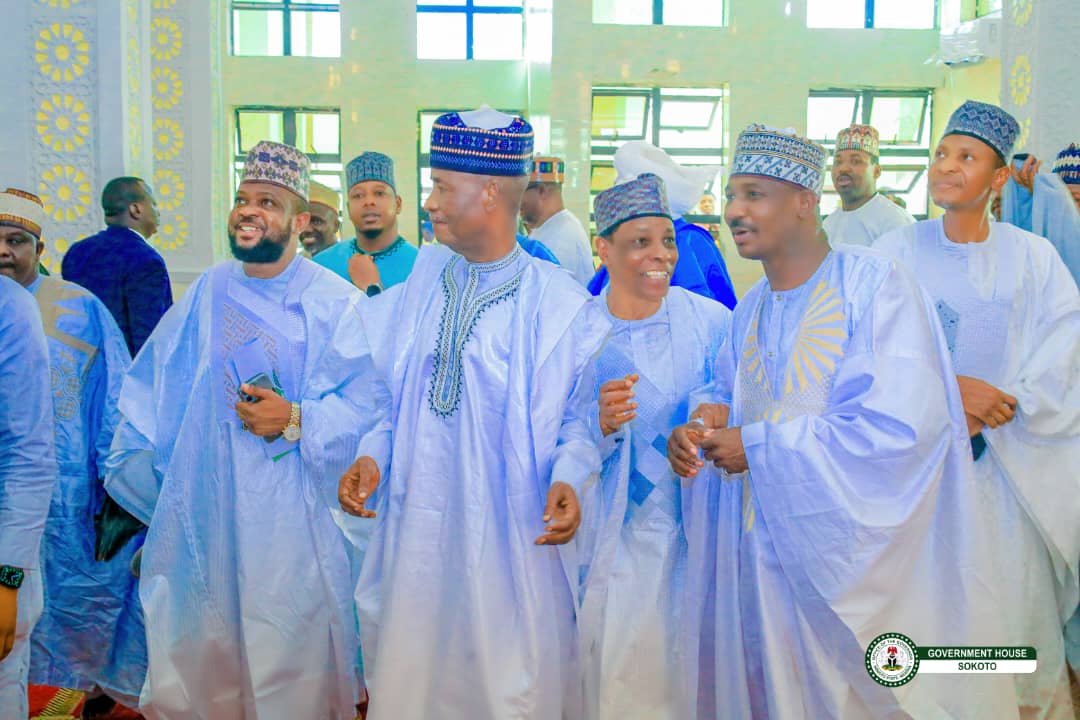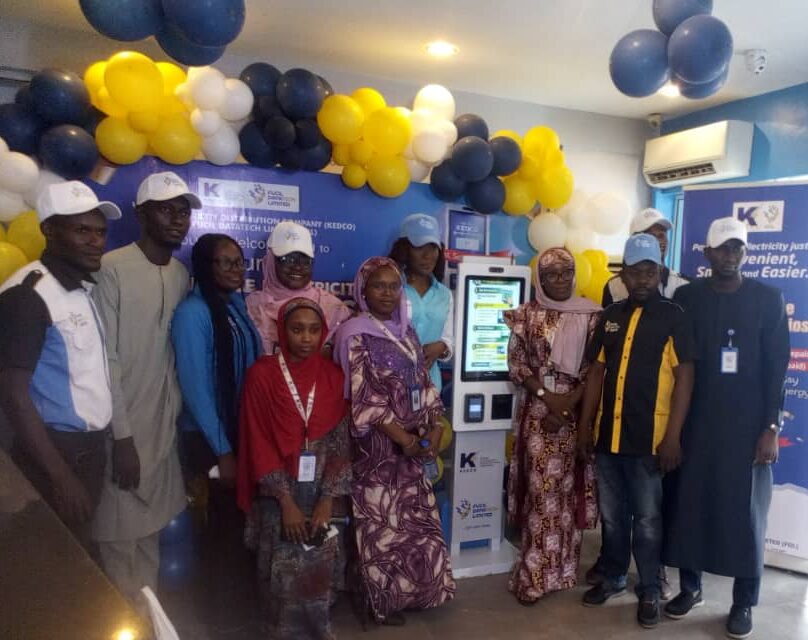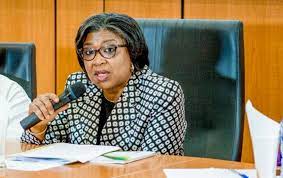The Debt Management Office (DMO) has clarified that loans from China to Nigeria, which presently stood at 3.59 billion dollars, constitutes only 9.4 per cent of the country’s total foreign debt stock of 37.9 billion dollars.
Ms Patience Oniha, Director-General, DMO, made this known in an interview with our Correspondent on Saturday in Abuja.
She also clarified that the loans were largely concessional, as no national asset was tagged as collateral.
It will be noted that in recent times, both the social and mainstream media have been awash with news about some African countries, including Nigeria, facing the threat of losing some critical national assets to the Asian country due to high level indebtedness.
“Nigeria’s total debt stock as at Sept. 30 was 37.9 billion dollars, this figure comprised the external debt stock of the Federal Government, 36 state governments and the Federal Capital Territory.
“ But total loans from China stands at 3.59 billion dollars, which is 9.47 per cent of the total external debt. The loans did not require any national asset as collateral; they were largely concessional,’’ she said.
Oniha urged Nigerians to always endeavour to verify sensitive information from official sources before disseminating it.
She explained that before foreign loans were contracted, very sensitive steps were taken by multiple institutions of government to ensure that they were beneficial to the nation.
“Before any foreign loan is contracted, including the issuance of Eurobond, they are approved by the Federal Executive Council and thereafter, the National Assembly.
“An important and extremely critical step is that the loan agreements are approved by the Federal Ministry of Justice.
“An opinion is issued by the Attorney-General of the Federation and Minister of Justice before the agreements are signed.
“Several measures which operate seamlessly have been put in place to ensure that data on debt are available and that debt is serviced as at when due. Provisions are made explicitly for debt service in the annual budgets,’’ she said.
Oniha explained that the loans agreements provided a number of steps to take to resolve dispute when they arise.
“The first action is that the parties should resolve it within themselves and if that fails, they go to arbitration.
“In other words, a lender, in this case, China, would not just pounce on an asset at the first sign of a dispute, including defaults,’’ the she said.
She explained that the DMO maintained proper records of debts, provided projections for debt service and processed the actual payments for debt service.
She pointed out that those functions were carried out in conjunction with the Office of the Accountant-General of the Federation (OAGF) and the Central Bank of Nigeria (CBN)
PROWAN visits Lagos market, trains MSMEs Bookkeeping methods
By Samson Olawuyi
The Professional Women Accountants in Nigeria (PROWAN), Lagos zone on Friday visited Alade market, Ikeja, Lagos to train the operators of Middle and Small Scale Enterprises on the techniques of bookkeeping and its importance.
In her speech, the guest Speaker at the Accounting outreach with the theme, “Proper bookkeeping as a tool for Business financing, Dr. Titilayo Fowokan identified bookkeeping as a way of keeping all small documents or receipt used in buy things and also used in the bank including bank deposit slip.
While explaining further in layman’s language, she defined bookkeping as the way we keep records of transactions we engage in on a daily basis.
Mrs Fowokan said; for you to have a finance, you have to undergo a book keeping, it will reveal to you what exactly you’ve bought, sell and gain per day.
She adviced the market women by introducing book keeping to their business and not to mix their business money with their personal money.
On her part. the National Chairman of PROWAN, Princess Eleamanya Ebilah defined bookkeeping as the recording of financial transactions done in their various shops or organization. She said it’s also the part or process of accounting in the business and organization.
Mrs Ebilah said there are a lot of financial problems in Nigeria, some of which the market women are facing nowadays, and the solution to this financial problems is by starting to include book keeping to their daily routine.
In her submission, the Zonal Coordinator of PROWAN Southwest, Mrs Olamide Fagbulu urged market women at Alade market to begin book keeping in their shops from that day and she explained to them difference between personal money and business money i.e (Aso ebi & business money), she also advised them that all money needed at home or for their personal needs should not be asked from their husband.
The PROWAN coordinator Ikeja axis,Mrs Aro Olutoyin while making her contribution also advised the women in the market to always take proper records and account down their goods to let them know the financial standing of their business,
NNPC’s revenue dropped by 9.07% in June
The Nigerian National Petroleum Company (NNPC) Limited disclosed on Saturday that its revenue for the month of June, 2021 stood at N894.64 billion, a 9.04 percent drop from the amount recorded in May.
Despite the drop NNPC returned to trading surplus of N141.96 billion following trading deficits recorded in May.
It added: “In June 2021, NNPC Group operating revenue as compared to May 2021, decreased by 9.07 percent or N89.27 billion to stand at N894.64 billion. Similarly, expenditure for the month decreased by 29.32 percent or N299.44 billion to stand at N721.93 billion.
It added: “In June 2021, NNPC Group operating revenue as compared to May 2021, decreased by 9.07 percent or N89.27 billion to stand at N894.64 billion. Similarly, expenditure for the month decreased by 29.32 percent or N299.44 billion to stand at N721.93 billion.
“The positive outlook was further bolstered by the performance of Duke Oil and the Nigerian Gas Marketing Company (NGMC) which also added to the improved bottom line.
“Trading surplus or trading deficit is derived after deduction of the expenditure profile from the revenue for the period under review.”
NNPC also disclosed a total of 1.63 billion litres of Premium Motor Spirit (petrol) was distributed across the country, translating to 54.50mn litres/day were supplied in June 2021.
Also, the report indicated 47 pipeline points were vandalized representing 26.56 percent decrease from the 64 points recorded in May 2021. Port Harcourt Area accounted for 43 percent, while Mosimi and Kaduna Areas accounted for 51 percent and 6 percent respectively of the vandalized points.
“In the gas sector, a total of 223.77billion cubic feet (bcf) of natural gas was produced in the month of June 2021 translating to an average daily production of 7,459.88million standard cubic feet per day (mmscfd).
“For the period of June 2020 to June 2021, a total of 2,890.11bcf of gas was produced representing an average daily production of 7,321.36mmscfd during the period.
“Period-to-date production from Joint Ventures (JVs), Production Sharing Contracts (PSCs) and NPDC contributed 59.84%, 20.26% and 19.90% respectively to the total national gas production,” it added.
Ogun lauds Dangote Cement, CCECC, others for boosting IGR
Ogun State Government has lauded the contributions of Dangote Cement Plc, China Civil Engineering Construction Corporation (CCECC), Nigeria Limited and JP Industry Limited, among others, for contributing to the state’s internally generated revenue (IGR).
The Commissioner for Finance and Chief Economic Adviser to the Governor, Dapo Okubadejo, disclosed this in Abeokuta during a cocktail party organised by the Ogun Internal Revenue Service (OGIRS).
Okubadejo, who thanked the tax compliant agents of the companies and others, including Federal Polytechnic, Ilaro, said that the contributions of their Public-Private Partnership (PPP) initiatives to the economic development of the state could not be downplayed.
He opined that the event was in recognition of the commitment of the agents and a way of getting closer to taxpayers, improving relationships and sharing ideas and recommendations that would enhance service delivery.
“The contributions of the Public-Private Partnership initiative in generating resources for economic development of the State cannot be downplayed, which explains the mechanisms put in place by the government to encourage investors.
“Government cannot function without private sectors’ collaboration, so it beholds us to put in place all necessary mechanisms to attract, appreciate and encourage them to do business with us in Ogun State, by creating the enabling environment, removing all red tapes and bottlenecks, to actually provide seamless and efficient service delivery” Okubadejo said.
Speaking, the Chairman, of OGIRS, Mr Olugbenga Olaleye, reiterated the statutory and legal bidding of payment of taxes in any governance all over the world, noting that sustainable development could be achieved when all taxable adults pay appropriate taxes as and when due.
“Tax is statutory. We all know that the revenue allocation in Nigeria is reducing and the only sustainable source of revenue for any government is taxation, as people will always be there to give back to the government to get the economy moving”, he said
In his address, the Special Adviser to the Governor on Revenue, Mr Abiodun Adeleye, said that digitalisation of all tax processes would enhance ease of doing business, especially the expansion of tax net and collection of appropriate taxes from all taxable residents in an efficient and transparent manner.
Earlier, a representative of JP Industry Limited, who spoke on behalf of other tax compliant agents, Mr Okorie Emmanuel, appreciated the state government for the honour, saying the event was first of its kind.













